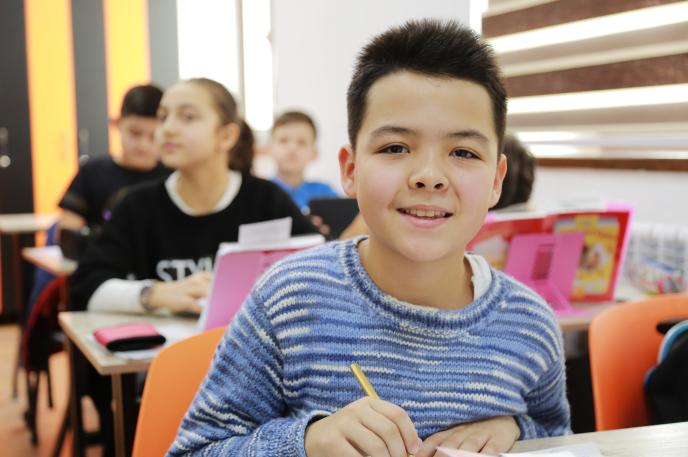
2020 back to school reading list
September 1, 2020
This year, going back to school looks different for everyone. While many students are settling into virtual school and learning from home, others are attending school in a hybrid format including online and in-person instruction, and some may be fully back in the classroom. Whatever the case, this curated list of back-to-school reads includes home schooling titles for parents and titles with characters who are home-schooled themselves.
Click here to browse the CMLibrary Suggests: Back-toSchool Book List
ADULT NONFICTION
Born Reading: Bringing Up Bookworms in a Digital Age, by Jason Boog
Most parents spend time thinking about how to give their child a competitive advantage in our fast-paced society. Interactive reading gives kids a significant edge, writes journalist Boog, a former publishing editor at Mediabistro, where he was also lead editor of the site's GalleyCat publishing blog. He asserts that there is a right way to read to your child between birth and age five. For each year, Boog provides a reading list and specific storytelling lessons, which include key questions to ask children to scaffold understanding. The book's "Playbook" section has tips and conversation starters to help novices navigate the read-aloud experience. For the higher preschool levels, Boog shares how following these reading guidelines correlates with specific Common Core standards. The explosion of digital devices is bringing a new face to reading, and the author shares how to make e-readers, smartphones, and tablets complement rather than distract from the book experience. He includes digital resources, apps, and audiobooks. VERDICT Boog's work helps parents navigate the world of reading and harness the positive power of digital technology. Librarians, preschool teachers, and parents will find this a valuable resource for building childhood literacy.
Make it Stick: The Science of Successful Learning, by Peter C. Brown
Co-authors Brown (Jumping the Job Track), Henry L. Roediger (James S. McDonnell Distinguished University Professor of Psychology, Washington Univ. in St. Louis), and Mark A. McDaniel (psychology, director of the Ctr. for Integrative Research on Cognition, Learning, and Education, Washington Univ. in St. Louis) challenge traditional ideas about learning in this survey of cognitive studies. The authors contend that, contrary to popular belief, effective long-term learning doesn't occur through passive and repeated exposure to information. Rather, learners can best acquire knowledge by actively recalling information and connecting it to their own experience. Brown, Roediger, and McDaniel enumerate principles for improving learning, but they couch these ideas in narrative, including personal anecdotes and case studies that demonstrate each point. The authors provide suggestions to students, adult learners, and trainers who may wish to implement new techniques in instruction. All the while, they demonstrate their own principles by reiterating key concepts, building associations, and interweaving topics throughout the book. Instructors and students will find that this title not only describes cognitive principles in general terms but also provides specific examples of study techniques and methods for constructing more effective courses. VERDICT This book will appeal to high school and college students as well as educators, trainers, and anyone interested in improving memory or having a better understanding of cognitive science.
Help Your Kids with Math, from DK Publishing
Using a full-color illustrated approach, a guide to parental math tutoring looks at every aspect of the challenging subject, from simple sums to simultaneous equations, in a book with simple explanations and clear illustrations that parents can share with their children.
How to Work and Homeschool, by Pamela Price
Do you want to homeschool, but you need to keep working? Maybe you're already homeschooling, but you would like to start a business? Perhaps you're homeschooling, working, and volunteering, but need to create space for yourself? How can this possibly be done? How do other parents manage? Enter Pamela Price of Red, White & Grew. After interviewing parents who are dealing with these very issues, Pamela has written "How to Work and Homeschool: Practical Advice, Tips, and Strategies from Parents," published by GHF Press. Filled with real world examples and tried-and-tested approaches, "How to Work and Homeschool" will give you the ideas and confidence to develop a game plan to incorporate work, homeschool, family obligations, and more into your busy life. Pamela busts myths about work and homeschool, shares some truths, and even provides sample schedules to help you get started. Whether you're considering homeschooling or are a veteran looking to make a change, "How to Work and Homeschool: Practical Advice, Tips, and Strategies from Parents" will help you on your journey.
The Brave Learner, by Julie Bogart
A joyful and accessible approach to homeschool that harnesses children's natural curiosity and makes learning a part of everyday life, whether they're in elementary or high school. Parents who are deeply invested in their children's education can be hard on themselves and their kids. When exhausted parents are living the day-to-day grind, it can seem impossible to muster enough energy to make learning fun or interesting. How do parents nurture a love of learning amid childhood chaos, parental self-doubt, the flu, and state academic standards? In this book, Julie Bogart distills decades of experience--homeschooling her five now grown children, developing curricula, and training homeschooling families around the world--to show parents how to make education an exciting, even enchanting, experience for their kids, whether they're in elementary or high school. Enchantment is about ease, not striving. Bogart shows parents how to make room for surprise, mystery, risk, and adventure in their family's routine, so they can create an environment that naturally moves learning forward. If a child wants to pick up a new hobby or explore a subject area that the parent knows little about, it's easy to simply say "no" to end the discussion and the parental discomfort, while dousing their child's curious spark. Bogart gently invites parents to model brave learning for their kids so they, too, can approach life with curiosity, joy, and the courage to take learning risks.
JUVENILE FICTION
Stop the Presses, by Rachel Wise
Sam's love of newsprint clashes with her love for the planet--and her BFF--in a Dear Know-It-All conflict of newsworthy proportions! When Sam hears Cherry Valley Middle School is "going green," she is delighted. Saving the Earth is very important to Sam, plus, she knows she can get a great story out of it. But that's before she finds out one of the environmentally friendly suggestions is to stop printing The Cherry Valley Voice! Who would dare to suggest that the school newspaper be published only online? When she discovers the idea came from her BFF, Hailey, Sam gets even more upset. How will Dear Know-It-All solve this total disagreement?
Princess Posey and the First Grade Boys, by Stephanie Greene
Posey gets in trouble when she makes up a not-so-nice song about one of the boys in her class.
Trick Out My School!, by Robin Mellom
The school face-lift that overachieving seventh-grade class-president Libby scores from the highest-rated school makeover reality show on TV brings host Kip Hottie McHotster Lee and a second camera crew to Westside Middle School (already the setting for an ongoing reality show). It also opens multiple cans of worms for Libby with the discovery that beneath the razzle-dazzle, the makeover is largely a sham. As in previous episodes of The Classroom, the on-camera conceit is readily abandoned for a lively mixture of inner ruminations and chapters of third-person narrative. More light school comedy, with frequent cartoon head shots, notebook pages, and illustrated high spots
The Miscalculations of Lightning Girl, by Stacy McAnulty
A lightning strike made Lucy, 12, a math genius but, after years of homeschooling, her grandmother enrolls her in middle school and she learns that life is more than numbers.
The Perfect Secret, by Rob Buyea
Gavin, Randi, Scott, Trevor and Natalie are back for seventh grade, and they have a big goal for the year: to get their teachers Mrs. Magenta and Mrs. Woods to mend their broken relationship. Although the five friends have discovered their teachers' secret, that they are mother and daughter, this won't be the only secret the kids find themselves keeping over the course of the school year. First-person narration switches among the five protagonists, effectively giving insight into their own personal challenges and struggles as they work together to help their teachers. Buyea has carved out a niche with sensitive and heartfelt stories, and this companion to The Perfect Score (2017) has him tackling topics like racism, immigration, bullying, and family secrets, with a deft hand. Buyea's story always remains positive, and although the ending might be a bit too fairy tale-ish for some readers, it could provide a nice escape for readers dealing with these issues of their own. Another winner from Buyea that is highly recommended for all middle-grade readers.
PICTURE BOOKS AND EASY READERS
Edda, a Little Valkyrie’s First Day of School, by Adam Auerbach
Adjusting to the rhythms and rules of school can be tough for any kid, but imagine how much of a challenge it is for a young Norse warrior maiden. Edda wants to spend time with people her own age, which is why she asks her kindly papa (though he's never named, with his eye-patch, it's safe to assume he's Odin) to fly her from Asgard to a typical neighborhood elementary school. But making the transition from helping "search the land for unruly monsters" to sitting still in class and waiting in line for the slide is asking a lot. Auerbach-an accomplished editorial artist with an approachable line drawing style and a sly, sympathetic wit-makes a terrific children's book debut in this folklore-meets-first-day story. He doesn't get too specific with his
Norse inspirations (Edda's magical home is as much Adventure Time as Asgard), but Edda is a fresh, funny twist on the kid who can't quite find a groove. While most readers won't have access to a dragon to help smooth the way for themselves, they should find her story encouraging.
Chu’s First Day of School, by Neil Gaiman
First introduced in Chu's Day (HarperCollins, 2012), the adorable, rotund little panda with the big sneeze here takes on a big milestone: his first day at school. Initially nervous and subdued as he watches his classmates discuss their special talents, Chu soon realizes that he, too, has something unique to share with his new friends and teacher. Once again, Rex's rich, painterly illustrations, characterized by deep, vibrant hues and rendered in oil and mixed media on board, dominate this quirky work. The contrast between the more serious tone of the images and the chaos introduced by Chu's famous sneeze, brought on by a dusty chalkboard, will delight children. Though the topic is familiar-a bad case of nerves before the first day is well-trod territory-and the story itself is on the spare side, readers will enjoy this humorous take on the subject. As with the first book, there's plenty of detail in the artwork, and children will love the appealing animals depicted: eagles, snakes, monkeys, and more. A charming title that is sure to leave kids wanting more-more Chu and more readings of this whimsical tale.
Teacher’s Pets, by Stephanie Calmenson
The girls are dismayed when their teacher is out sick and they have a substitute. Mr. Z makes goofy jokes and can't keep the class under control. Worst of all, he doesn't say anything when mean Darlene makes fun of Kate and Lucie. Luckily, once the girls turn into dogs, Kate and Lucie learn they can save the day--and even make a new friend.
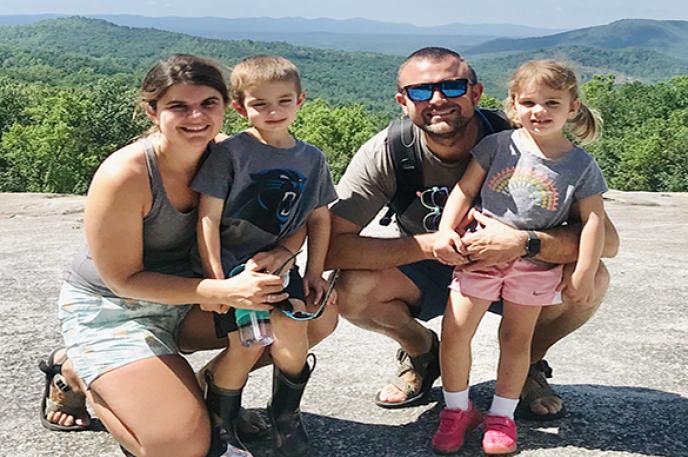
Sometimes you have to pretend to be a librarian
October 9, 2020
When Charlotte Mecklenburg Library reduced its services in March 2020 in response to the COVID-19 pandemic, the Correll family felt the impact. It is customary for the family, who have been Library customers since 2016, to make weekly visits to their neighborhood branch; North County Regional Library. When in-person programming and browsing temporarily suspended, the family, like others in the Charlotte Mecklenburg community, started to miss the familiar, friendly faces of Library staff as well as participating in their favorite library activities.
But the Correll children seemed to miss interactions with Library staff the most.
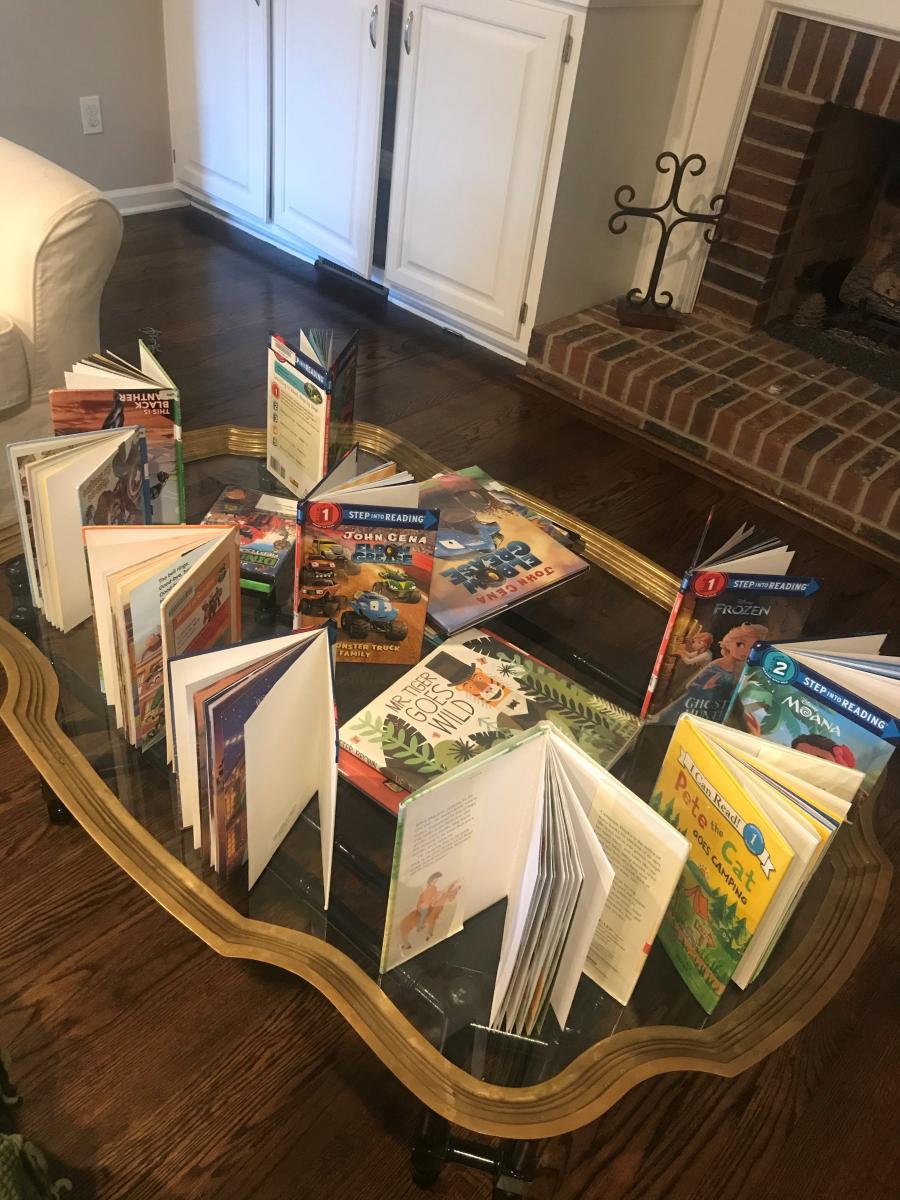 Having grown accustomed to working on puzzles before and after storytime, attending storytime and browsing books throughout the years, Sharon Correll noticed her children bringing the Library experience to themselves one August afternoon. After stopping by the branch to pick up book bundles for her three-year-old daughter and five-year-old son, Sharon discovered they placed the freshly borrowed books on display throughout the family’s home just as they would find them at the Library. Next, they busied themselves with reading and, finally, in the sweetest form of imitation, they started to pretend that they were the very librarians they missed.
Having grown accustomed to working on puzzles before and after storytime, attending storytime and browsing books throughout the years, Sharon Correll noticed her children bringing the Library experience to themselves one August afternoon. After stopping by the branch to pick up book bundles for her three-year-old daughter and five-year-old son, Sharon discovered they placed the freshly borrowed books on display throughout the family’s home just as they would find them at the Library. Next, they busied themselves with reading and, finally, in the sweetest form of imitation, they started to pretend that they were the very librarians they missed.
Now that all Library locations are open for in-person browsing, Sharon sees many more trips to the Library in their future. “We look forward to continuing to browse the awesome selection of children’s books,” says Sharon. “It's easy to social distance and it's one of our favorite things to do each week." she adds.
In addition to in-person materials browsing, the Correll family also enjoys digital resources such as downloadable e-books, e-audiobooks and renting DVDs. "We appreciate [the Library] and thank you for all you do," says Sharon.
Find yourself missing your local Library too? We look forward to seeing you soon! Click here to find more information about our hours of operation, available Library services and to review our multi-phased re-opening plan.
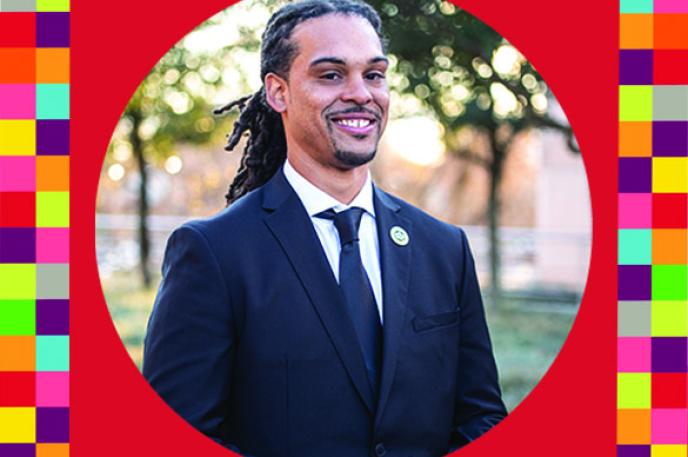
Engage HER on Campus- UNC Charlotte Edition, “49ers Make Good Trouble: From Campus Activism to the Ballot Box”
October 14, 2020
Throughout this crucial election season, Charlotte Mecklenburg Library is teaming up with several local universities to get students and the community involved in the political process. Our next event is in conjunction with UNC Charlotte.
UNC Charlotte is a campus with a rich history of social and political activism aimed at pushing for change on both a local and national level. From civil rights protesters of the 1960s, anti-war proponents of the 1970s, LGBTQ activists of the 1980s, and Black Lives Matter organizers of 2020, 49er students and faculty have a rich tradition of taking on injustice and making what Congressman and civil rights activist John Lewis would call “good trouble”.
Join us on October 20 at 7 p.m. for a virtual event that will bring together campus activists and local leaders who all made “good trouble” to push for positive change in their communities. City Council Member Braxton Winston will serve as the keynote speaker and will be followed by a panel of student, faculty, and community activists dedicated to achieving justice and equity in Charlotte today. Learn about the legacy of activism from 49ers past, what is driving activism now, and ways we all can advocate and push for the causes nearest to our hearts and communities.
One crucial place to start this election season is at the ballot box. In our own city of Charlotte, John Lewis said, “the right to vote is the most powerful nonviolent tool we have to create a more perfect union.” This event will also provide information on how to register and vote so you can make your own voice heard during Election 2020.
This program is open to all of the UNC Charlotte campus and the Charlotte community and will be live-streamed on the Library’s Facebook page and YouTube Channel. We hope you will tune in for this opportunity to learn, engage, and even enter for a chance to win a few giveaways!
In this election year, the Library is partnering with the Digital Public Library of America (DPLA) offering programs like this one to encourage everyone to look back at what has been accomplished in the past and to move forward with empowerment to make a difference in one's own community. To learn more about Engage 2020, click here.

Virtual Programming from the Library - Week of 10/19/20
October 14, 2020
Did you know that you can continue to stay connected to the Library while staying home? How would you like to participate in a virtual storytime with your family or receive resume help all from the comfort of your couch? Join Charlotte Mecklenburg Library every week for a wide range of virtual programming for children, teens and adults. See a complete listing of this upcoming programming for the week of 10/19/2020 below. Click the corresponding links for more information and register for programs where applicable.
Learn more about online programming by clicking here
Monday 10/19
Family Storytime – 9:30 a.m. (Children's programming) learn more
Book a Librarian - Nonprofit Services – 11 a.m. (Adult programming) register
One-on-One Tutoring and Enrichment – 11 a.m. (Children’s programming) register
Virtual Reading Buddies – 11 a.m. (Children's programming) register
Virtual Reading Buddies – 12 p.m. (Children's programming) register
Parent Lunch & Learn: Mindfulness for Parents – 12 p.m. (Adult programming) register
Mindful Mondays - Guided Relaxation and Meditation – 12 p.m. (Adult programming) register
Virtual Reading Buddies – 1 p.m. (Children's programming) register
One-on-One Tutoring and Enrichment – 2 p.m. (Children’s programming) register
Virtual Reading Buddies – 2 p.m. (Children's programming) register
Book a Librarian – Technology – 2 p.m. (Adult programming) register
One-on-One Tutoring and Enrichment - 3 p.m. (Children's programming) register
Virtual Reading Buddies – 3 p.m. (Children's programming) register
One-on-One Tutoring and Enrichment - 4 p.m. (Children's programming) register
Virtual Reading Buddies – 4 p.m. (Children's programming) register
Stronger Together: Support for your Job Search – 4 p.m. (Adult programming) register
One-on-One Tutoring and Enrichment - 5 p.m. (Children's programming) register
Virtual Reading Buddies – 5 p.m. (Children's programming) register
One-on-One Tutoring and Enrichment – 6 p.m. (Children's programming) register
Virtual Reading Buddies – 6 p.m. (Children's programming) register
Tuesday 10/20
Family Storytime – 9:30 a.m. (Children's programming) learn more
Book a Librarian - Business Research – 11 a.m. (Adult programming) register
Virtual Reading Buddies – 11 a.m. (Children's programming) register
One-on-One Tutoring and Enrichment - 11 a.m. (Children's programming) register
Virtual Reading Buddies – 12 p.m. (Children's programming) register
Career Development Intensive Coaching – 12 p.m. (Adult programming) register
Career Development Intensive Coaching – 12:30 p.m. (Adult programming) register
History's Mysteries: What Time Is It? – 1 p.m. (Adult programming) register
Virtual Reading Buddies – 1 p.m. (Children's programming) register
Virtual Reading Buddies – 2 p.m. (Children's programming) register
Book a Librarian - Technology – 2 p.m. register
One-on-One Tutoring and Enrichment – 2 p.m. (Children's programming) register
One-on-One Tutoring and Enrichment – 3 p.m. (Children's programming) register
Virtual Reading Buddies – 3 p.m. (Children's programming) register
One-on-One Tutoring and Enrichment – 4 p.m. (Children's programming) register
Virtual Reading Buddies – 4 p.m. (Children's programming) register
One-on-One Tutoring and Enrichment – 5 p.m. (Children's programming) register
Virtual Reading Buddies – 5 p.m. (Children's programming) register
One-on-One Tutoring and Enrichment – 6 p.m. (Children's programming) register
Virtual Reading Buddies – 6 p.m. (Children's programming) register
Wednesday 10/21
Family Storytime – 9:30 a.m. (Children's programming) learn more
Active Reading Family Workshop - Part 1 – 10 a.m. (Adult programming) register
One-on-One Tutoring and Enrichment – 11 a.m. (Children’s programming) register
Virtual Reading Buddies – 11 a.m. (Children's programming) register
Virtual Reading Buddies – 12 p.m. (Children's programming) register
Virtual Reading Buddies – 1 p.m. (Children's programming) register
One-on-One Tutoring and Enrichment – 2 p.m. (Children’s programming) register
Virtual Reading Buddies – 2 p.m. (Children's programming) register
Book a Librarian – Technology – 2 p.m. (Adult programming) register
One-on-One Tutoring and Enrichment - 3 p.m. (Children's programming) register
Virtual Reading Buddies – 3 p.m. (Children's programming) register
One-on-One Tutoring and Enrichment - 4 p.m. (Children's programming) register
Virtual Reading Buddies – 4 p.m. (Children's programming) register
One-on-One Tutoring and Enrichment - 5 p.m. (Children's programming) register
Virtual Reading Buddies – 5 p.m. (Children's programming) register
College Basics: What You Need to Know presented by UNCC – 6 p.m. (Teen programming) register
One-on-One Tutoring and Enrichment – 6 p.m. (Children's programming) register
Virtual Reading Buddies – 6 p.m. (Children's programming) register
Thursday 10/22
Family Storytime – 9:30 a.m. (Children's programming) learn more
Book a Librarian - Business Research – 11 a.m. (Adult programming) register
Virtual Reading Buddies – 11 a.m. (Children's programming) register
One-on-One Tutoring and Enrichment - 11 a.m. (Children's programming) register
Virtual Reading Buddies – 12 p.m. (Children's programming) register
Career Development Intensive Coaching – 12 p.m. (Adult programming) register
Career Development Intensive Coaching – 12:30 p.m. (Adult programming) register
Virtual Reading Buddies – 1 p.m. (Children's programming) register
Virtual Reading Buddies – 2 p.m. (Children's programming) register
Book a Librarian - Technology – 2 p.m. (Adult programming) register
One-on-One Tutoring and Enrichment – 2 p.m. (Children's programming) register
One-on-One Tutoring and Enrichment – 3 p.m. (Children's programming) register
Virtual Reading Buddies – 3 p.m. (Children's programming) register
One-on-One Tutoring and Enrichment – 4 p.m. (Children's programming) register
Virtual Reading Buddies – 4 p.m. (Children's programming) register
One-on-One Tutoring and Enrichment – 5 p.m. (Children's programming) register
Virtual Reading Buddies – 5 p.m. (Children's programming) register
Caregiver Class: Active Reading Training for Caregivers of K-3 Students – 6 p.m. (Adult programming) register
One-on-One Tutoring and Enrichment – 6 p.m. (Children's programming) register
Virtual Reading Buddies – 6 p.m. (Children's programming) register
Friday 10/23
Family Storytime – 9:30 a.m. (Children's programming) learn more
Virtual Reading Buddies – 11 a.m. (Children's programming) register
One-on-One Tutoring and Enrichment – 11 a.m. (Children's programming) register
Virtual Reading Buddies – 12 a.m. (Children's programming) register
Mindful Friday- Meditation for Wellness – 12 p.m. (Adult programming) register
Virtual Reading Buddies – 1 p.m. (Children's programming) register
Virtual Reading Buddies – 2 p.m. (Children's programming) register
Book a Librarian - Technology – 2 p.m. register
One-on-One Tutoring and Enrichment – 2 p.m. (Children's programming) register
One-on-One Tutoring and Enrichment – 3 p.m. (Children's programming) register
Virtual Reading Buddies – 3 p.m. (Children's programming) register
Saturday 10/24
Family Storytime – 9:30 a.m. (Children's programming) learn more
Virtual Reading Buddies – 10 a.m. (Children's programming) register
Virtual Reading Buddies – 11 a.m. (Children's programming) register
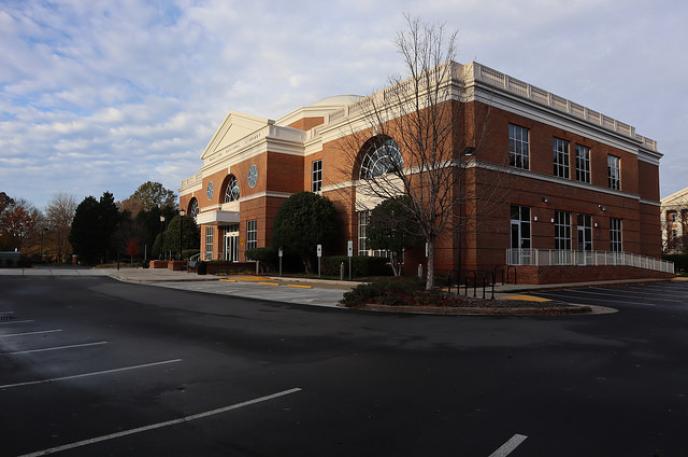
Library Makes Changes to Align with Its Commitment to Expanding Equity, Diversity and Inclusion
October 19, 2020
On October 19, 2020 Charlotte Mecklenburg Library announced it is making changes within its system to align with its commitment to expanding equity, diversity and inclusion. The effort includes the formation of the Racial Equity Task Force, renaming Morrison Regional Library branch and removing the effects of racism and injustice within the library and its 20 branch locations to ensure a welcoming environment for all residents.
“Systemic racism and inequity have no place in public libraries other than as recorded history to remind us how we got to this moment in time,” said Charlotte Mecklenburg Library CEO Lee Keesler. “As a trusted institution, we are committed to providing an inclusive and welcoming environment for everyone in our community.”
An early step in this work was Keesler’s convening of an internal legacy audit to review commemorations and collectibles to ensure they align with the Library’s position on equity. In addition, Keesler recently announced the formation of the Racial Equity Task Force. Co-chaired by former Charlotte Mecklenburg Library Board of Trustees Chair Rob Harrington and Library Chief Customer Officer/Library Director Caitlin Moen, the new Task Force builds on the Library’s existing Diversity & Equity Action Team’s work with goals to expand equity, diversity and inclusion throughout the Library system.
The Library Board of Trustees took immediate action in approving the priority removal, relocation or renaming of 10 commemorations throughout the system whose history, meaning or presence does not align with the Library’s current position on racism and inequity. Among the changes is the renaming of Morrison Regional Library to SouthPark Regional Library.
Charlotte Mecklenburg Library worked closely with the Harris family, who in 1989 generously donated the land on which the Morrison Regional Library sits, to re-name the branch the SouthPark Regional Library. The library branch was originally named in honor of their grandfather, Governor Cameron A. Morrison.
“We remain as committed to building a stronger Charlotte-Mecklenburg today as we did when we gifted land more than 30 years ago for a needed library,” said Johnny Harris. “Our family and Charlotte Mecklenburg Library share a mutual pride in strengthening our community, and we recognize that our libraries are a wonderful benefit to county residents.”
The Harris family’s civic leadership is well regarded, said Charlotte Mecklenburg Library Board of Trustees Chair Joe Helweg. “We’re grateful for how the Harris family’s generous gift of land helped build the Library’s ability to reach further into the community and appreciate their ongoing collaboration,” said Helweg. “Charlotte Mecklenburg Library is committed to thoughtfully and intentionally contributing services, programs and resources to our community that are inclusive and equitable.”
Over the coming months, signage at the branch location and across all Library materials will be updated to reflect the new name of SouthPark Regional Library, and the Library staff will continue to remove and relocate collectibles throughout the system as recommended by the audit.
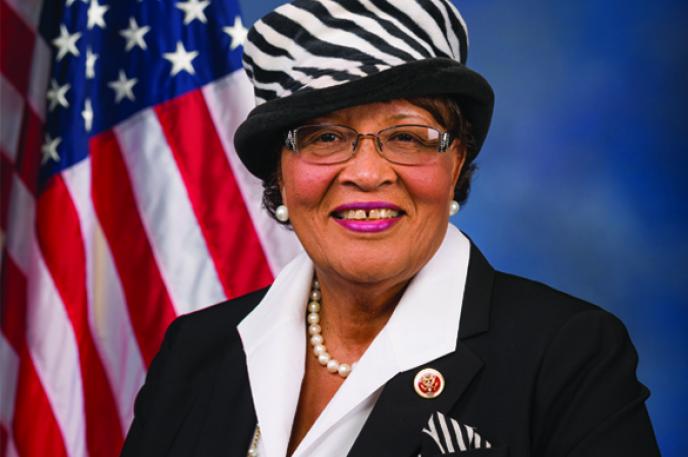
Engage HER On Campus - Johnson C. Smith University Edition, Diverse Voices of Women in the Movement
October 21, 2020
Charlotte Mecklenburg Library in partnership with Johnson C. Smith University (JCSU) Library will host Engage HER: Diverse Voices of Women In the Movement, a virtual event. The event will focus on Black Women's leadership, activism, and the importance of voting in 2020. The James B. Duke Memorial Library at JCSU will join women all over the United States to celebrate and recognize the struggle that leads to the 19th Amendment that gave American women the right to vote.
The event will open with comments from Dr. Karen D. Morgan, JCSU Senior Vice President, followed by a conversation from Congresswoman Alma S. Adams, Ph.D. led by media personality “Chirl Girl” and closing remarks by Dr. Willie Griffin, civil rights scholar, and educator.
Engage HER: Diverse Voices of Women In the Movement will feature a panel discussion with JCSU recent graduates, Laura Salinas, from Toluca Edo. de Mexico immigrated to York, SC, Quaneisha Payne, social justice and political engagement advocate for students voters, Claire Tandoh, founder and organizer of KidzFedUp, a youth-led activist group and Dr. Tekla Johnson, Africana Historian. The event will be moderated by Monika Rhue, JCSU Director of Library Services and Curation.
There will be a special performance by Black Ink Monks, featuring Diashanna Logan poet and writer with videography Andrew Smith. The program activities will also highlight the sounds of the movement and giveaways.
Join us for Engage HER: Diverse Voices of Women In the Movement is a virtual event, October 26, 2020, from 6 p.m. - 8:30 p.m. This program will be live-streamed on the Library's Facebook page and YouTube channel. To add this event to your calendar, click here.
In this election year, the Library is partnering with the Digital Public Library of America (DPLA) offering programs like this one to encourage everyone to look back at what has been accomplished in the past and to move forward with empowerment to make a difference in one's own community. To learn more about Engage 2020, click here.
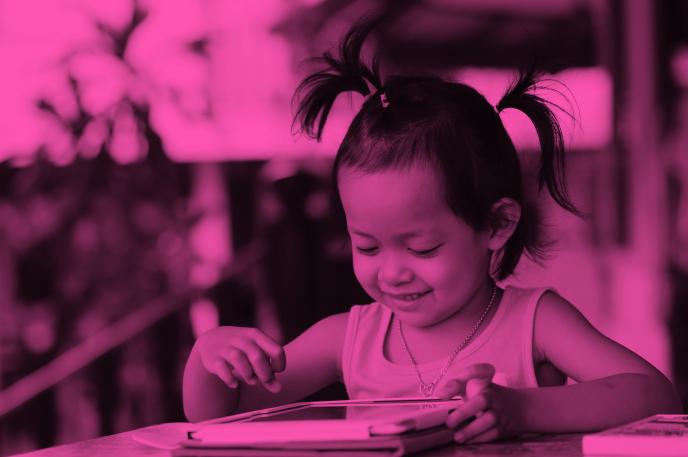
Virtual Programming from the Library - Week of 10/26/20
October 21, 2020
Did you know that you can continue to stay connected to the Library while staying home? How would you like to participate in a virtual storytime with your family or receive resume help all from the comfort of your couch? Join Charlotte Mecklenburg Library every week for a wide range of virtual programming for children, teens and adults. See a complete listing of this upcoming programming for the week of 10/26/2020 below. Click the corresponding links for more information and register for programs where applicable.
Learn more about online programming by clicking here
Monday 10/26
Family Storytime – 9:30 a.m. (Children's programming) learn more
Book a Librarian - Nonprofit Services – 11 a.m. (Adult programming) register
One-on-One Tutoring and Enrichment – 11 a.m. (Children’s programming) register
Virtual Reading Buddies – 11 a.m. (Children's programming) register
Virtual Reading Buddies – 12 p.m. (Children's programming) register
Parent Lunch & Learn: Finding Time to Read as a Parent– 12 p.m. (Adult programming) register
Mindful Mondays - Guided Relaxation and Meditation – 12 p.m. (Adult programming) register
Virtual Reading Buddies – 1 p.m. (Children's programming) register
One-on-One Tutoring and Enrichment – 2 p.m. (Children’s programming) register
Virtual Reading Buddies – 2 p.m. (Children's programming) register
Book a Librarian – Technology – 2 p.m. (Adult programming) register
One-on-One Tutoring and Enrichment - 3 p.m. (Children's programming) register
Virtual Reading Buddies – 3 p.m. (Children's programming) register
One-on-One Tutoring and Enrichment - 4 p.m. (Children's programming) register
Virtual Reading Buddies – 4 p.m. (Children's programming) register
Stronger Together: Support for your Job Search – 4 p.m. (Adult programming) register
One-on-One Tutoring and Enrichment - 5 p.m. (Children's programming) register
Virtual Reading Buddies – 5 p.m. (Children's programming) register
Let's Talk About Books: What Have you Read Lately? – 5:30 p.m. (Adult programming) register
One-on-One Tutoring and Enrichment – 6 p.m. (Children's programming) register
Virtual Reading Buddies – 6 p.m. (Children's programming) register
Tuesday 10/27
Family Storytime – 9:30 a.m. (Children's programming) learn more
Book a Librarian - Business Research – 11 a.m. (Adult programming) register
Virtual Reading Buddies – 11 a.m. (Children's programming) register
One-on-One Tutoring and Enrichment - 11 a.m. (Children's programming) register
Virtual Reading Buddies – 12 p.m. (Children's programming) register
Career Development Intensive Coaching – 12 p.m. (Adult programming) register
Career Development Intensive Coaching – 12:30 p.m. (Adult programming) register
Virtual Reading Buddies – 1 p.m. (Children's programming) register
Virtual Reading Buddies – 2 p.m. (Children's programming) register
Book a Librarian - Technology – 2 p.m. register
One-on-One Tutoring and Enrichment – 2 p.m. (Children's programming) register
One-on-One Tutoring and Enrichment – 3 p.m. (Children's programming) register
Virtual Reading Buddies – 3 p.m. (Children's programming) register
One-on-One Tutoring and Enrichment – 4 p.m. (Children's programming) register
Virtual Reading Buddies – 4 p.m. (Children's programming) register
One-on-One Tutoring and Enrichment – 5 p.m. (Children's programming) register
Virtual Reading Buddies – 5 p.m. (Children's programming) register
One-on-One Tutoring and Enrichment – 6 p.m. (Children's programming) register
Virtual Reading Buddies – 6 p.m. (Children's programming) register
Wednesday 10/28
Family Storytime – 9:30 a.m. (Children's programming) learn more
Active Reading Family Workshop- Part 2 – 10 a.m. (Adult programming) register
One-on-One Tutoring and Enrichment – 11 a.m. (Children’s programming) register
Virtual Reading Buddies – 11 a.m. (Children's programming) register
Virtual Reading Buddies – 12 p.m. (Children's programming) register
Virtual Reading Buddies – 1 p.m. (Children's programming) register
One-on-One Tutoring and Enrichment – 2 p.m. (Children’s programming) register
Virtual Reading Buddies – 2 p.m. (Children's programming) register
Book a Librarian – Technology – 2 p.m. (Adult programming) register
One-on-One Tutoring and Enrichment - 3 p.m. (Children's programming) register
Virtual Reading Buddies – 3 p.m. (Children's programming) register
One-on-One Tutoring and Enrichment - 4 p.m. (Children's programming) register
Virtual Reading Buddies – 4 p.m. (Children's programming) register
One-on-One Tutoring and Enrichment - 5 p.m. (Children's programming) register
Virtual Reading Buddies – 5 p.m. (Children's programming) register
Teens Live on Instagram: Pumpkin Spiced Cider – 5 p.m. (Teen programming) learn more
One-on-One Tutoring and Enrichment – 6 p.m. (Children's programming) register
Virtual Reading Buddies – 6 p.m. (Children's programming) register
History's Mysteries: Weird Carolinas - Local Tales of the Unexplained – 6 p.m. (Adult programming) register
Thursday 10/29
Family Storytime – 9:30 a.m. (Children's programming) learn more
Book a Librarian - Business Research – 11 a.m. (Adult programming) register
Virtual Reading Buddies – 11 a.m. (Children's programming) register
One-on-One Tutoring and Enrichment - 11 a.m. (Children's programming) register
Virtual Reading Buddies – 12 p.m. (Children's programming) register
Career Development Intensive Coaching – 12 p.m. (Adult programming) register
Career Development Intensive Coaching – 12:30 p.m. (Adult programming) register
Virtual Reading Buddies – 1 p.m. (Children's programming) register
Virtual Reading Buddies – 2 p.m. (Children's programming) register
Book a Librarian - Technology – 2 p.m. (Adult programming) register
One-on-One Tutoring and Enrichment – 2 p.m. (Children's programming) register
One-on-One Tutoring and Enrichment – 3 p.m. (Children's programming) register
Virtual Reading Buddies – 3 p.m. (Children's programming) register
Caregiver Class: Active Reading Training for Caregivers of 2-5 Year Olds – 4 p.m. (Adult programming) register
One-on-One Tutoring and Enrichment – 4 p.m. (Children's programming) register
Virtual Reading Buddies – 4 p.m. (Children's programming) register
One-on-One Tutoring and Enrichment – 5 p.m. (Children's programming) register
Virtual Reading Buddies – 5 p.m. (Children's programming) register
One-on-One Tutoring and Enrichment – 6 p.m. (Children's programming) register
Virtual Reading Buddies – 6 p.m. (Children's programming) register
Resources to Pay for College with CFNC – 6 p.m. (Teen programming) register
Friday 10/30
Family Storytime – 9:30 a.m. (Children's programming) learn more
Nonprofit Services: Coffee & Conversation – 11 a.m. (Adult programming) register
Virtual Reading Buddies – 11 a.m. (Children's programming) register
One-on-One Tutoring and Enrichment – 11 a.m. (Children's programming) register
Virtual Reading Buddies – 12 a.m. (Children's programming) register
Mindful Friday- Meditation for Wellness – 12 p.m. (Adult programming) register
Virtual Reading Buddies – 1 p.m. (Children's programming) register
Virtual Reading Buddies – 2 p.m. (Children's programming) register
Acing the Interview Process: What to do before, during, and after the interview – 2 p.m. (Adult programming) register
Book a Librarian - Technology – 2 p.m. register
One-on-One Tutoring and Enrichment – 2 p.m. (Children's programming) register
One-on-One Tutoring and Enrichment – 3 p.m. (Children's programming) register
Virtual Reading Buddies – 3 p.m. (Children's programming) register
Hear Me Now - Letter Writing for Change – 3 p.m. (Adult programming) register
Virtual Reading Buddies – 3:30 p.m. (Children's programming) register
Saturday 10/31
Family Storytime – 9:30 a.m. (Children's programming) learn more
Virtual Reading Buddies – 10 a.m. (Children's programming) register
Virtual Reading Buddies – 11 a.m. (Children's programming) register
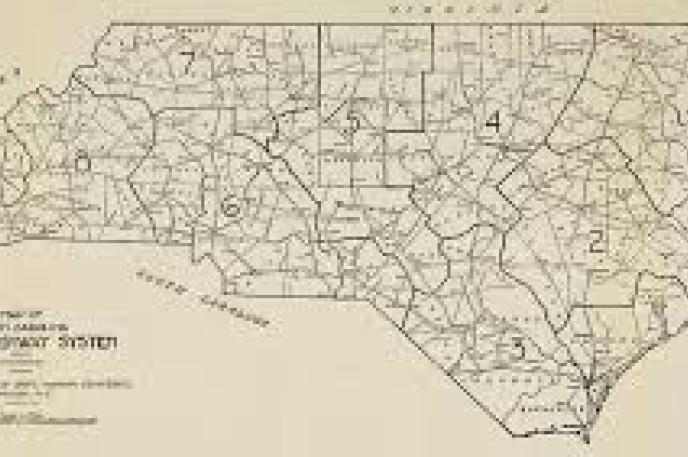
Historical Background of Governor Cameron Morrison
October 23, 2020
Introduction
In October 2020, the Charlotte Mecklenburg Library Board of Trustees reviewed and approved 10 legacy audit changes throughout the Library system, including the re-naming of the Morrison Regional Library to SouthPark Regional Library. The Morrison Branch was originally named in honor of former Governor Morrison after land for the Library was generously donated by his descendants in 1989. This blog presents the historical context behind the decision to rename the branch location.
This article is presented by the staff in the Robinson-Spangler Carolina Room located in Main Library. For more historical and genealogical information, visit them here.
Historical Background
In the 1890s, a cross-racial alliance changed the political landscape of North Carolina before being stamped out. Black Republicans teamed up with progressive farmers of the People’s Party to win State and Local elections. This partnership was unofficial in that both parties kept separate organizations. The term “Fusionist” was applied to the partnership by the rival Democratic Party. The Democratic Party of the time represented largely landed or other wealthy, white interests. Throughout the reconstruction era, the Democratic Party used the Ku Klux Klan as an “unofficial but effective tool of political terrorism […] often preventing Republicans of both races from voting.”[1]
Nevertheless, the Fusionist partnership was extremely successful during the elections of 1894 and 1896. They enacted reforms from 1895-1898:
The Republican-Populist General Assembly of 1895 liberalized access to the ballot (especially for blacks), decentralized local government, increased taxes for education, and reduced the legal rate of interest on certain contracts to 6 percent per year. The legislature also sent a Populist, Marion Butler, and a Republican, Jeter Pritchard, to the U.S. Senate.[2]
Cameron Morrison and the Election of 1898
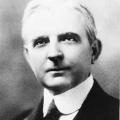 Cameron Morrison saw himself as a loyal servant of the State of North Carolina. In a Heriot Clarkson biography of Morrison, the author reports that he and his white contemporaries built themselves a mythos in which they were the saviors of a state under conditions that were “desperately bad." [3],[4] Clarkson explained, “There were forty negroes in office in [Richmond] county, thirteen justices of the peace, a negro on the county board of education, and two on each township school board…”[5] That African-Americans were even serving in these roles was problematic enough for Morrison and his fellow white supremacists.
Cameron Morrison saw himself as a loyal servant of the State of North Carolina. In a Heriot Clarkson biography of Morrison, the author reports that he and his white contemporaries built themselves a mythos in which they were the saviors of a state under conditions that were “desperately bad." [3],[4] Clarkson explained, “There were forty negroes in office in [Richmond] county, thirteen justices of the peace, a negro on the county board of education, and two on each township school board…”[5] That African-Americans were even serving in these roles was problematic enough for Morrison and his fellow white supremacists.
Morrison joined the Democratic Party in 1891 and quickly began a campaign of racial intimidation. During 1894, he “challenged over 200 negroes for illegal registration and prevented them from voting.”[6] Thus began Morrison’s career of voter suppression of Black North Carolinians on behalf of the Democratic Party.
In 1898, North Carolina Democrats were determined to take back control of the General Assembly and the Governor’s office from the Fusionists. The most obvious way to cleave apart the two groups that made up the Fusionists was to highlight racial differences and emphasize the supposed danger of Black voting and civic participation. Under the leadership of Furnifold Simmons of Jones County, prominent Democratic speakers were sent out across the state promoting white supremacy, the need to protect white women from Black men, and disenfranchisement of Black men.[7] Cameron Morrison was the primary representative for this group in his native Richmond county. According to Clarkson, “In this [Red Shirt] campaign, young Morrison’s speeches were […] so convincing and appealing that hundreds of Republicans joined the Democratic Party and put on white supremacy buttons.”
The Red Shirt campaign, of which Morrison was an enthusiastic participant, terrorized and intimidated white and Black Fusionist voters alike.[8] On October 24, 1898, some of the Democratic Party’s most prominent white men, including Robert Glenn, Thomas Jarvis, Cameron Morrison, Alfred Waddell and Charles Aycock, packed the Thalian Hall opera house in Wilmington. All speakers stressed that white supremacy was the only issue of importance for white men. The Democrats were aided by newspaper editor Josephus Daniels of the Raleigh-based News and Observer who ran stories about attacks on white women, vitriolic editorials, and sensational cartoons against Black citizens. (It is worth noting that both the News and Observer and the Charlotte Observer have since apologized for their roles in the Red Shirt campaign).[9],[10]
On November 10, 1898, Alfred Waddell led a violent campaign in Wilmington, N.C., which was the stronghold of the Fusionists. Blacks were not only prevented from voting in the 1898 election, they were attacked by the Red Shirts and other large mobs. Up to 60 Black citizens were murdered.[11] Black businesses were burned, and many Black families fled for their lives. Nearly 150 armed white men stormed the vote-counting station and replaced the legitimate ballot box with fraudulent ballots in favor of the Democratic Party.[12]
This incident became known as the Wilmington Massacre and remains the only successful coup d’état in American history.[13] Democrats took back state control and the General Assembly enacted the state’s first Jim Crow Laws which denied Black men the right to vote and enforced segregation of the races. This policy continued until the voting rights act of 1965, and its effects echo to this day.
Following 1898
The coup being successful, the Democrats began to celebrate their victory. Again, from Clarkson:
A few mornings after the election, the Raleigh News and Observer declared that “The spirit early manifested in Richmond County that the ‘whites would rule the land or die’ spread to adjoining counties, [and] finally permeated the whole east[…].
Cameron Morrison aroused that spirit in Richmond County and was one of the unquestioned leaders of the [Red Shirt] movement. […]
Senator [Furnifold] Simmons said that, “The first real hope in the [Red Shirt] campaign in the State had been inspired in him by the spirit of Richmond County under the splendid leadership of Cameron Morrison, and that when the history of the movement for white supremacy came to be written no man would be given greater credit for the victory than Cameron Morrison.”[14]
It is clear from this 1927 biography that Morrison was not a pawn of larger players nor was he simply “a man of his times” – an explanation used to deemphasize the complicity of those that advocate white supremacy. Morrison was an enthusiastic architect of white supremacy in North Carolina, largely to advance his own political career.
Gubernatorial Campaign of 1920 and Administration
In 1920, Cameron Morrison ran for Governor in North Carolina on the same white supremacist platform of his predecessor. During this campaign, he was challenged on his participation in the Red Shirt campaign and voiced no remorse for his participation, but instead “again expressed pride in having been one of those who wore the red shirt in the days referred to.”[15] Similarly, he made opposition to women’s suffrage a key part of his campaign by highlighting that it would allow Black women to vote as well.[16]
Despite his history and the tone and tenor of his campaign, his administration enacted several significant reforms and advancements for the state:
While best known today as the state's “Good Roads Governor," Cameron Morrison took equal pride in his contributions to enhance educational and charitable institutions. Under pressure from both the governor and citizens' groups, the 1921 General Assembly committed North Carolina to an ambitious six-year, $20 million expansion program at the overcrowded state institutions of higher learning and at the dozen or so state-operated insane asylums, reformatories, sanatoriums, and schools for the deaf and blind. Moreover, in 1921 the operating budgets for these facilities, as well as for the State Board of Health, were significantly increased […]
In 1921 he summoned a conference of prominent black and white citizens, out of which evolved the North Carolina Commission on Interracial Co-operation. More significantly, he took a vigorous stand against lynching. Due largely to Morrison's policy of dispatching troops to a locality at the slightest hint of impending violence, no lynchings occurred in North Carolina during the last three and one-half years of his term. "I want to let the world know,” he declared in 1922, “that lynchings have ended in North Carolina.”[17],[18]
Cameron Morrison in Our Modern Context
Most of the men involved in the 1898 campaign went on to have successful political careers and served their state and their nation in high positions of responsibility. Charles B. Aycock would serve as governor, Furnifold Simmons would serve as a U.S. Senator, Claude Kitchins would become a U.S. Congressman, and Josephus Daniels would continue to serve as Editor of the Raleigh News & Observer before being named Ambassador to Mexico.
These men did not serve all the people of the state or the country, only those they considered “worthy.” In recent years, Aycock’s name has been removed from campuses in the UNC system as well as from North Carolina high schools that bear his name. Josephus Daniels’ statue was recently dismantled on behalf of the family and the Josephus Daniels Charitable Foundation. Another was also removed from the campus of NC State. On July 10, 2020, a special commission at UNC Chapel Hill began examining names of its buildings and removed names that honored three contemporaries of Morrison: Charles B. Aycock, Julian Carr and Josephus Daniels.
Cameron Morrison made his home in Charlotte beginning in 1901 and returned there after his term as Governor. He and his descendants have been deeply engaged in building a stronger Charlotte Mecklenburg community for over a century. Nevertheless, as the conversation on history evolves, Cameron Morrison’s accomplishments as Governor do not replace the harm he directly and indirectly caused the many Black citizens of North Carolina. The Library Board of Trustees determined that Morrison’s documented support of white supremacy in North Carolina is associated with one of the darkest chapters in the history of our state. As an inclusive and welcoming space for the entire community, systemic racism and inequity have no place in public libraries or Charlotte Mecklenburg Library other than as recorded history to remind us how we got to this moment in time.
For More Information See
Cecelski, David S. and Timothy B. Tyson. “Democracy Betrayed: The Wilmington Race Riot of 1898 and Its Legacy”. University of North Carolina Press, 1998. https://cmlibrary.bibliocommons.com/item/show/762904106.
Note: One physical copy is held in NCR. One eBook copy.
Hanchett, Thomas W. “Sorting Out the New South City: Race, Class, and Urban Development in Charlotte, 1875-1975”. University of North Carolina Press, 2020. https://cmlibrary.bibliocommons.com/item/show/2706936106.
Note: Copies held at South Boulevard, Main, Morrison, Plaza-Midwood, and University City. One eBook copy.
Tyson, Timothy B. “The Ghosts of 1898: Wilmington’s Race Riot and the Rise of White Supremacy”. [Raleigh] News and Observer and Charlotte Observer, 2006. https://media2.newsobserver.com/content/media/2010/5/3/ghostsof1898.pdf.
Umfleet, LeRae. “1898 Wilmington Race Riot Report”. 1898 Wilmington Race Riot Commission. Research Branch, Office of Archives and History, N.C. Dept. of Cultural Resources, 2006. https://digital.ncdcr.gov/digital/collection/p249901coll22/id/5335.
Sources:
[1] James L. Hunt, “Fusion of Republicans and Populists,” in Encyclopedia of North Carolina, ed. William S. Powell (Chapel Hill, NC: University of North Carolina Press, 2006), https://www.ncpedia.org/fusion-republicans-and-populists.
[2] Ibid.
[3] Heriot Clarkson, “A Biographical Sketch of Cameron Morrison,” in Public Papers and Letters of Cameron Morrison: Governor of North Carolina 1921-1925, ed. William H. Richardson and D.L. Corbitt (Raleigh, NC: Edwards & Broughton Company, 1927), pp. ii-xxxi.
[4] Robert Heriot Clarkson was manager of Cameron Morrison’s 1920 campaign for Governor and close friend. He served as vice-mayor of Charlotte from 1887-89 and 1891-93. In 1896, he helped organize a Charlotte white supremacy club. Morrison nominated him to the NC Supreme Court in 1923, a position he would continue to hold until 1942. He is well-placed to know Morrison’s beliefs and we will therefore accept him at his own words.
[5] Ibid, p. xxi.
[6] Ibid.
[7] LeRae Umfleet, “The Wilmington Massacre - 1898,” NCPedia, 2010, https://www.ncpedia.org/history/cw-1900/wilmington-massacre-1898, p. 77.
[8] James L. Hunt, “Red Shirts,” in Encyclopedia of North Carolina, ed. William S. Powell (Chapel Hill, NC: University of North Carolina Press, 2006), https://www.ncpedia.org/red-shirts.
[9] “Blot on NC History,” Charlotte Observer, November 16, 2006, p. A10.
[10] Joe Strupp, “Why North Carolina Papers Apologized for Role In 1898 Race Riots,” Editor & Publisher, 2006, https://web.archive.org/web/20200301110147/http://www.editorandpublishe….
[11] LeRae Umfleet, “The Wilmington Massacre - 1898,” NCPedia, 2010, https://www.ncpedia.org/history/cw-1900/wilmington-massacre-1898.
[12] David Zucchino, Wilmington's Lie: The Murderous Coup of 1898 and the Rise of White Supremacy (New York, NY: Atlantic Monthly Press, 2020), pp. 167-168.
[13] Andrew Morgan Benton, “The Press and the Sword: Journalism, Racial Violence, and Political Control in Postbellum North Carolina”. NC State University Libraries, 2016. https://repository.lib.ncsu.edu/handle/1840.16/11061.
[14] Clarkson, p. xxii.
[15] “Mountain People Endorse Morrison's Red Shirt Record.,” The Union Herald, October 14, 1920, p. 4.
[16] Douglas Carl Abrams, “Cameron Morrison (1869-1953),” 2016, https://northcarolinahistory.org/encyclopedia/cameron-morrison-1869-195….
[17] Nathaniel F. Magruder, “Morrison, Cameron,” NCPedia, 1991, https://www.ncpedia.org/biography/morrison-cameron.
[18] The author registers his grave doubt that lynchings in the State of North Carolina ended in 1922. Nevertheless, this “achievement” is considered notable by Morrison himself and is therefore worth highlighting as part of the mythos that Morrison created around himself.
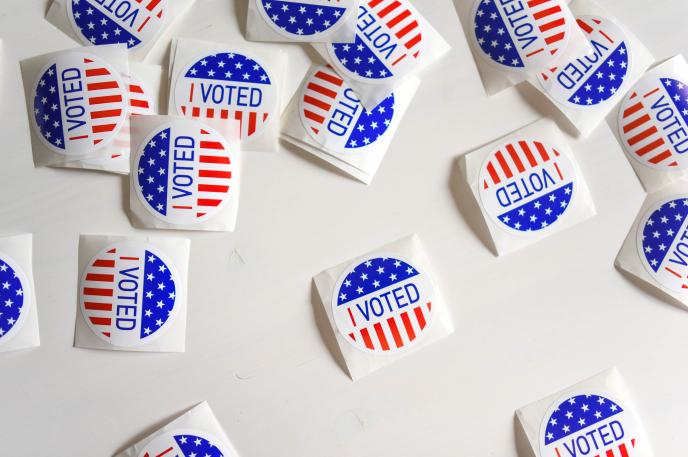
How To Vote In The 2020 General Election
October 26, 2020
University City Regional Library is the only Library branch designated as a voting precinct. To verify that this is your assigned voting location please visit the Board of Elections site here.
Do you have questions about the 2020 General Election? This year, with the coronavirus pandemic, knowing how to vote is just as important as what is on the ballot. WFAE has answers to some of the biggest questions you might have about the Nov. 3 election.
Where Do I Vote?
Where you vote depends on what precinct you live in – and there are around 200 precincts in Mecklenburg County.
To find your Mecklenburg County precinct and polling place, put your first and last name here. It is a good idea to double-check this page as locations can change.
For the other counties in North Carolina, search for your polling place here or find a convenient early voting site here.
You must vote in your assigned precinct and each polling place will have a list of all registered voters in the area.
What Do I Need To Vote?
In North Carolina, you do not need your photo ID. In 2019, a federal court stopped the ID requirement for the state.
If you are voting in person, you can bring your cellphone into the booth with you, but there are rules.
You cannot take any photos inside the booth, including ballots, other voters, or even of yourself. Once you are outside the booth, you are free to take selfies.
You also cannot use your cellphone to text, call, email, or communicate in any way with anybody while voting. If you need assistance voting, let somebody working at the polls know.
Cellphones are allowed to look up information on candidates and issues. You are also allowed to bring other voter information to the polls.
Unless you are dropping off an early ballot, you do not need a ballot or any other materials to vote.
How Will Voting Be Different This Year?
Because of the coronavirus pandemic, more people are expected to vote by mail or early in person. As many as 30-40% of voters in North Carolina are estimated to vote absentee, and another 50% are expected to vote early in 2020.
Those who vote in person will be provided with single-use pens to sign in and cotton swabs to use touchscreen voting machines to reduce physical contact with equipment and the possible spread of the virus.
Absentee Voting
Absentee voting has two methods voters can cast ballots other than the traditional method. These methods are absentee by mail and absentee one-stop.
Absentee by Mail
Registered voters in Mecklenburg County can request an absentee ballot from the Mecklenburg County Board of Elections. Voters have to ask for the form before Oct. 27 by completing the absentee ballot request form. An application and ballot will be mailed to the voter after the request form is received. Ballots began to be mailed on Sept. 4.
Here's how to send a request form:
- Email the request form to [email protected]
- The application form can be faxed at 704-319-9722
- The document can be mailed to PO Box 31788 Charlotte, NC 28231
- The document can be dropped off at 741 Kenilworth Ave. Suite 202 Charlotte, NC 28204.
Because of the coronavirus pandemic, in June, Gov. Roy Cooper signed a law that will allow voters to request absentee ballots online. Additionally, it changed the number of required witnesses from two to one.
If you are in the military, the immediate family of an active-duty military member, or a U.S. citizen overseas, visit FVAP.gov to register and request your ballots.
How To Fill Out Your Absentee Ballot
If you've never voted absentee-by-mail before, it's a good idea to read directions carefully and check out the State Board of Elections guide to ensure that you fill out your ballot correctly and your vote is counted.
Most importantly, you must remember to sign your absentee ballot envelope. Sign the outside of the ballot return envelope and have your witness complete and sign the witness certification.
How To Return Your Absentee Ballot
You can return your absentee ballot in several ways:
- By mail to your county board of elections. It must be postmarked on or before Election Day, Nov. 3, and received by 5 p.m. Nov. 6.
- By commercial courier service (FedEx, UPS or DHL).
- Dropped off in-person at your county board of elections by 5 p.m. Nov. 3. (Mecklenburg County's Board of Election is located at 741 Kenilworth Ave., Suite 202, Charlotte, NC 28204.)
- Dropped off in person at any early-voting site during voting hours.
The U.S. Postal Service has suggested that voters returning ballots by mail send them no later than Oct. 30. Some election experts have recommended sending it back even earlier -- no later than Oct. 25.
You can track your absentee-by-mail ballot to ensure that it has been received at a new State Board of Elections website here.
Election officials have repeatedly reminded voters that voting twice is a felony, and voters who submit absentee-by-mail ballots should not show up to vote in person on Election Day.
Early Voting
Voters can choose to vote in person if they’re worried about post office delays or crowds on Election Day. Registered voters can use one-stop early voting, which begins Oct. 15 at 8 a.m. and ends Oct. 31 at 3 p.m. Specific dates, times and locations vary by site. Find an early voting site by using the drop-down menu to select your county here. A map should appear with several locations.
One-Stop Early Voting
At one-stop early voting sites during the two-week early voting period, eligible voters can register to vote and vote on the same day. One-stop early voting sites can be found here.
Same-day registrants must provide proof of where they live and their eligibility to vote. Proof of residence can be provided with any of the following documents showing your current name and address:
- A North Carolina driver's license.
- Other photo ID issued by a government agency, provided the card includes the current name and address.
- A copy of a current utility bill, bank statement, government check, paycheck or other government document showing the voter's name and address.
- A current college/university photo ID card paired with proof of campus habitation.
Within two days of registration, the county board of elections will verify the registrant's driver's license or Social Security number, update the voter registration database, search for possible duplicate registrations and begin to verify the registrant's address by mail.
What's Different About Early Voting Sites This Year?
Because of the coronavirus pandemic, larger sites will be used for early voting for allow for social distancing. This year, early voting sites in Mecklenburg County include Bank of America Stadium, Spectrum Center and Bojangles Coliseum. A full list, with times each site is open, can be found here.
How Do You Vote If You're Sick Or Disabled After The Request Deadline For An Absentee Ballot?
If a voter is sick or disabled, they can apply in person or have a close relative or verifiable legal guardian apply in person at the Mecklenburg County Board of Elections office. A ballot will then be delivered to the voter.
This option is only available for sick or disabled voters after 8 a.m. on the Wednesday prior to each election (Oct. 28) but not later than 5 p.m. on the Monday before each election (Nov. 2).
Effective July 1, voters who are blind, disabled or who cannot read or write may receive assistance in completing the request form. Any member of a multi-partisan assistance team can help any voter in completing a state absentee ballot request form. Team members can also deliver a completed request form to the county board of elections and serve as a witness for casting the ballot.
If someone other than a close relative or legal guardian is assisting a voter, that person's name and address must be listed on the state absentee ballot request form.
Contact the public information manager, Kristin Mavromatis, at 704-336-2133 or email her at [email protected].
What If I Am Denied The Right To Vote?
As long as you are 18 years old on Election Day, registered to vote 25 days prior to that date, have lived in the county you’re voting in for 30 days and are not serving time for a felony (including probation and/or parole), you have the right to vote.
Again, North Carolina residents do not need a photo ID to vote, but there are other laws residents should be aware of on Election Day.
You must be registered to vote on Election Day, but you do not have to be affiliated with any political party to vote.
You do not have to pay any money to vote. You also cannot be intimidated to not vote or vote a certain way or to disclose who or what you voted for.
Being able to access the polls is also your right as a voter. If you are unable to access the ballot box, curbside service must be provided.
If you have any problems voting, contact the North Carolina State Board of Elections at 919-814-0700 or at 866-522-4723. You can also email the board at [email protected].
If there are issues with casting your vote, you have the right to fill out a provisional ballot on Election Day.
What Is A Provisional Ballot?
A provisional ballot is a ballot that will be counted later after your information and voter registration is confirmed.
If there are issues confirming your voter registration and your name is on the list at your precinct's polling place, you have the right to a provisional ballot. A provisional ballot allows you to cast a vote for the same ballot everyone else is voting on. But because your information must be confirmed, it will not be included in the initial results.
But your vote still counts: If a race is too close to call and provisional ballots could impact who wins, a winner will not be called.
In 2016, about 60,000 provisional votes were cast and about one-third of them were later counted. A provisional ballot does not guarantee your vote will later be counted. However, you have the right to check on the status of your ballot, which you can do here.
This blog was written by WFAE as a series of voter education and awareness. To see the original article, click here.
